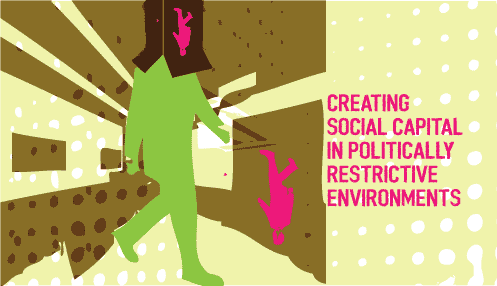March 11, 2011
To preserve power and political stability, many repressive regimes have taken measures to prohibit extensive civic engagement and bar the development of a free, civil society. In cases where engagement in the physical public sphere may be limited, a rise in virtual space has provided alternative mode for collective organization, linking closed societies to an open sphere of civic dialogue. The question remains then, can civic engagement in the virtual sphere allow repressed societies to create social capital equivalent to that seen in the open, democratic physical sphere? As we will examine later in this article, the power behind Iran’s Weblogistan has been playing a crucial role in developing ideologies, increasing interconnectedness, and strengthening social ties. Through the weblog and similar mediums of virtual communication, technology presents an alternative to traditional public space in engaging individuals, connecting society, and developing social trust.


